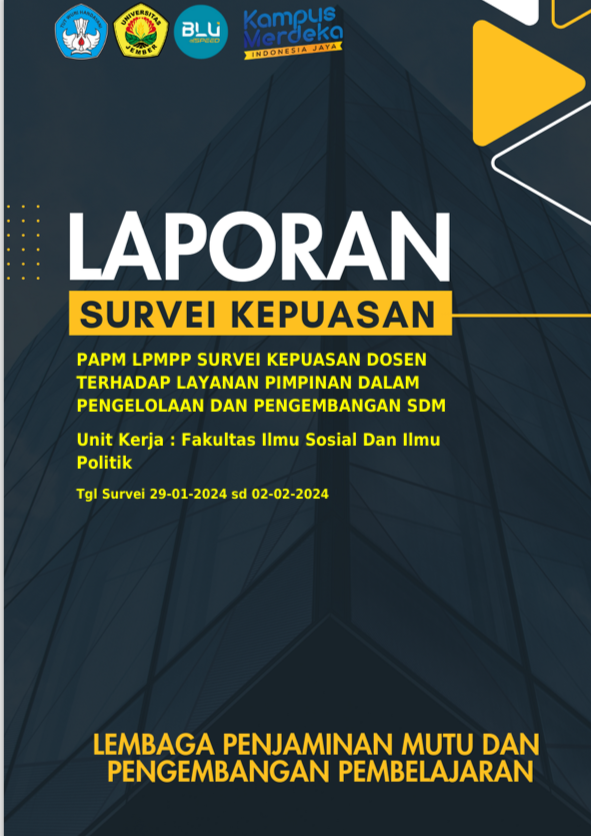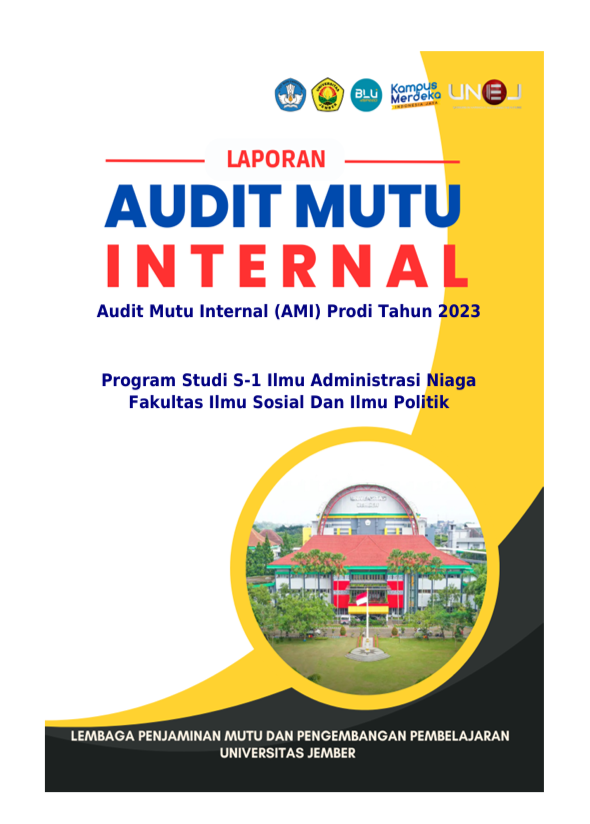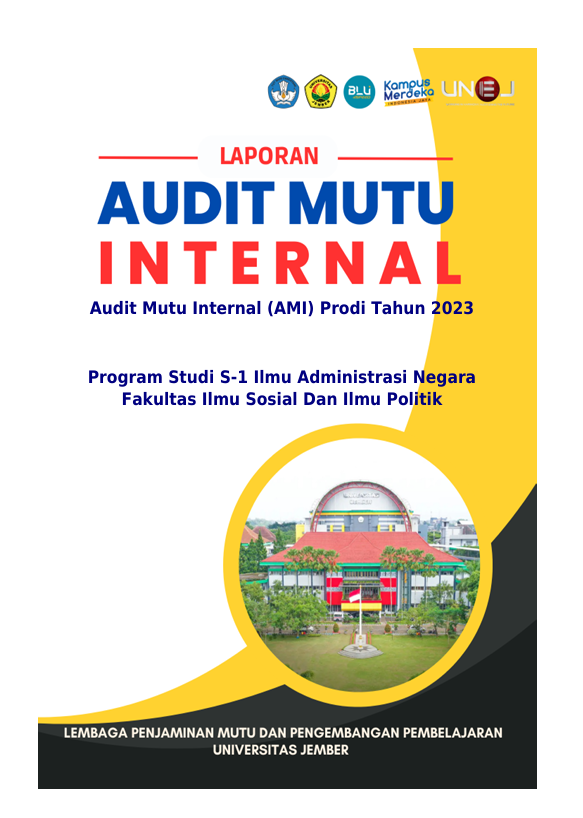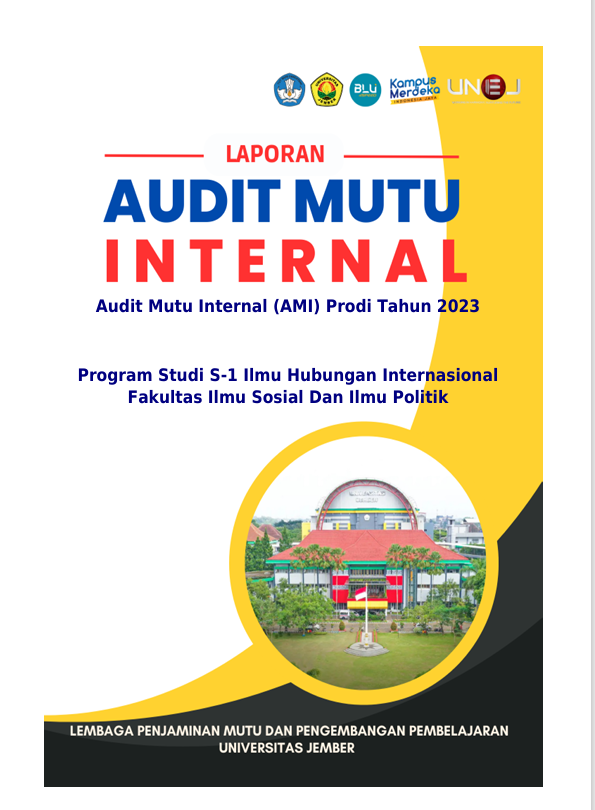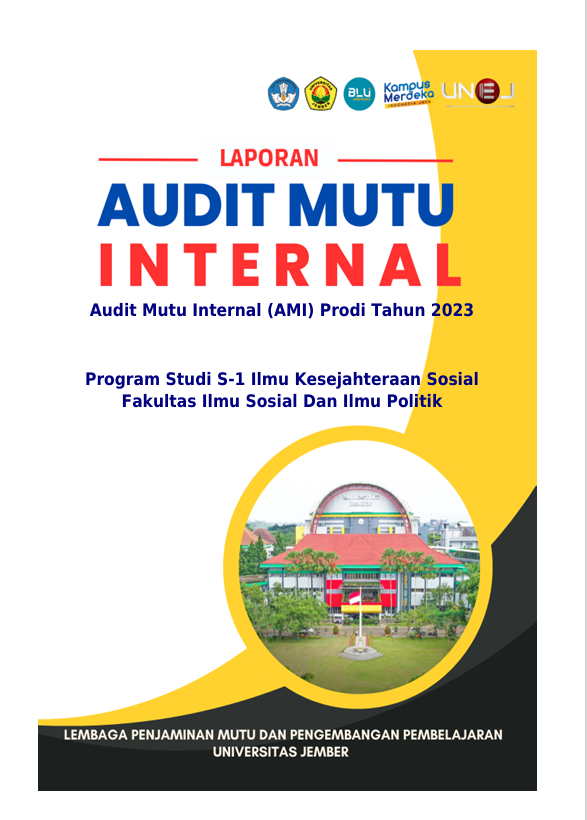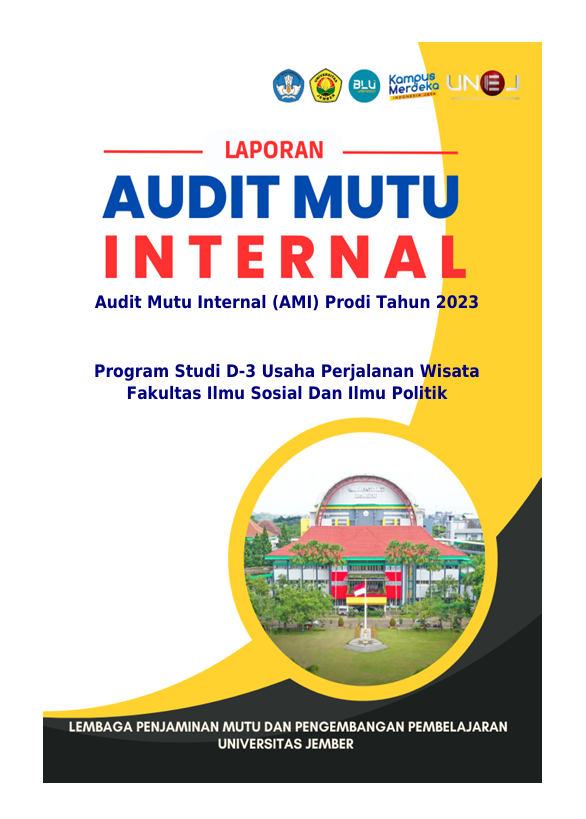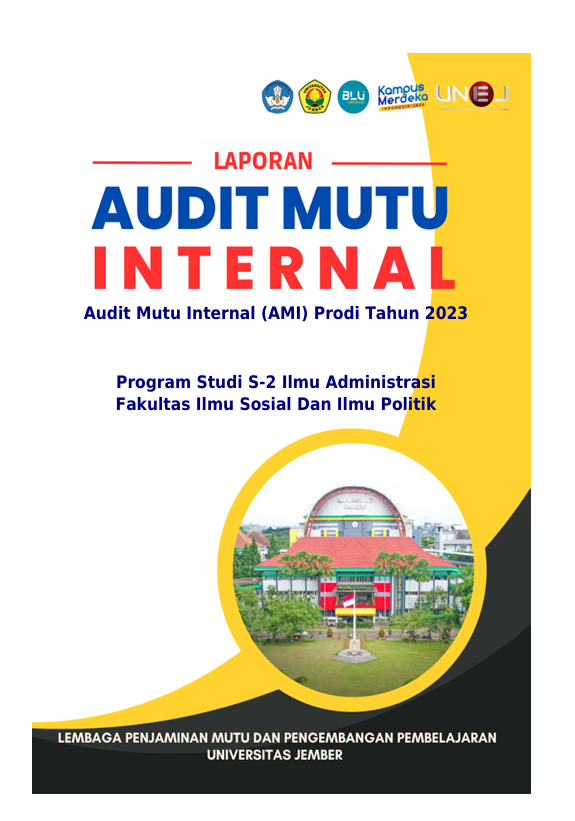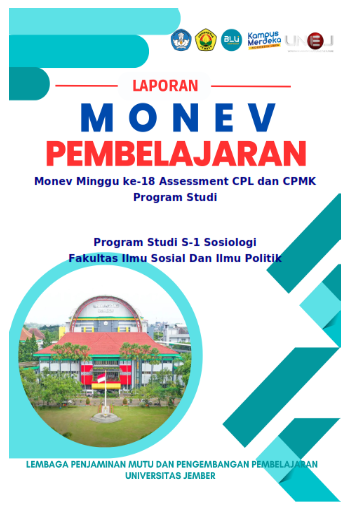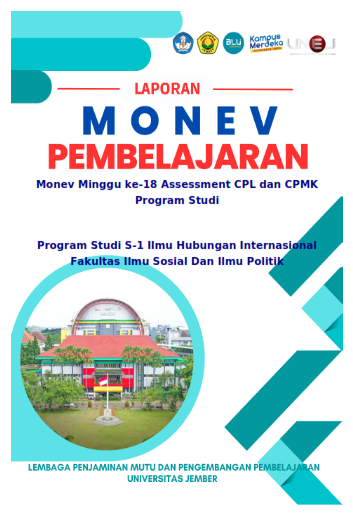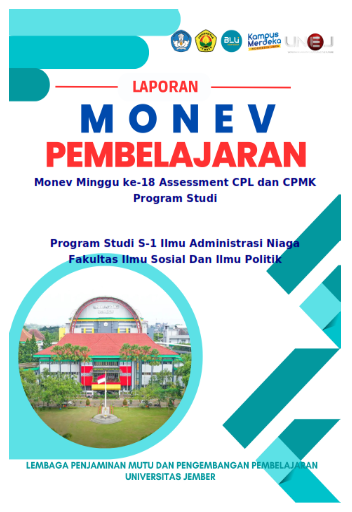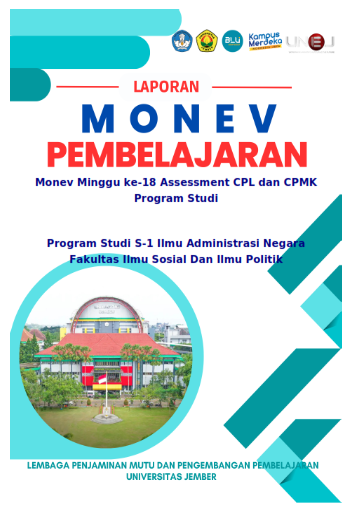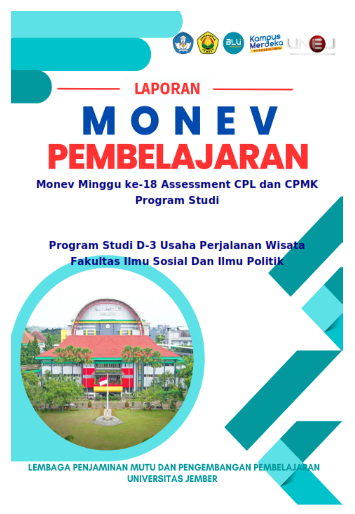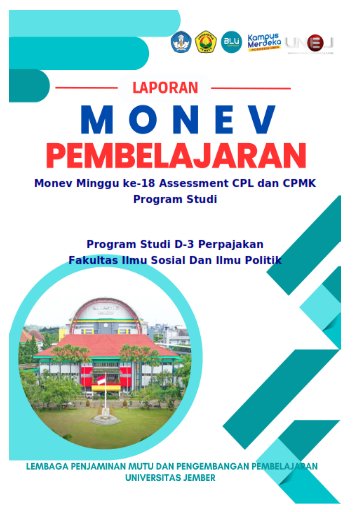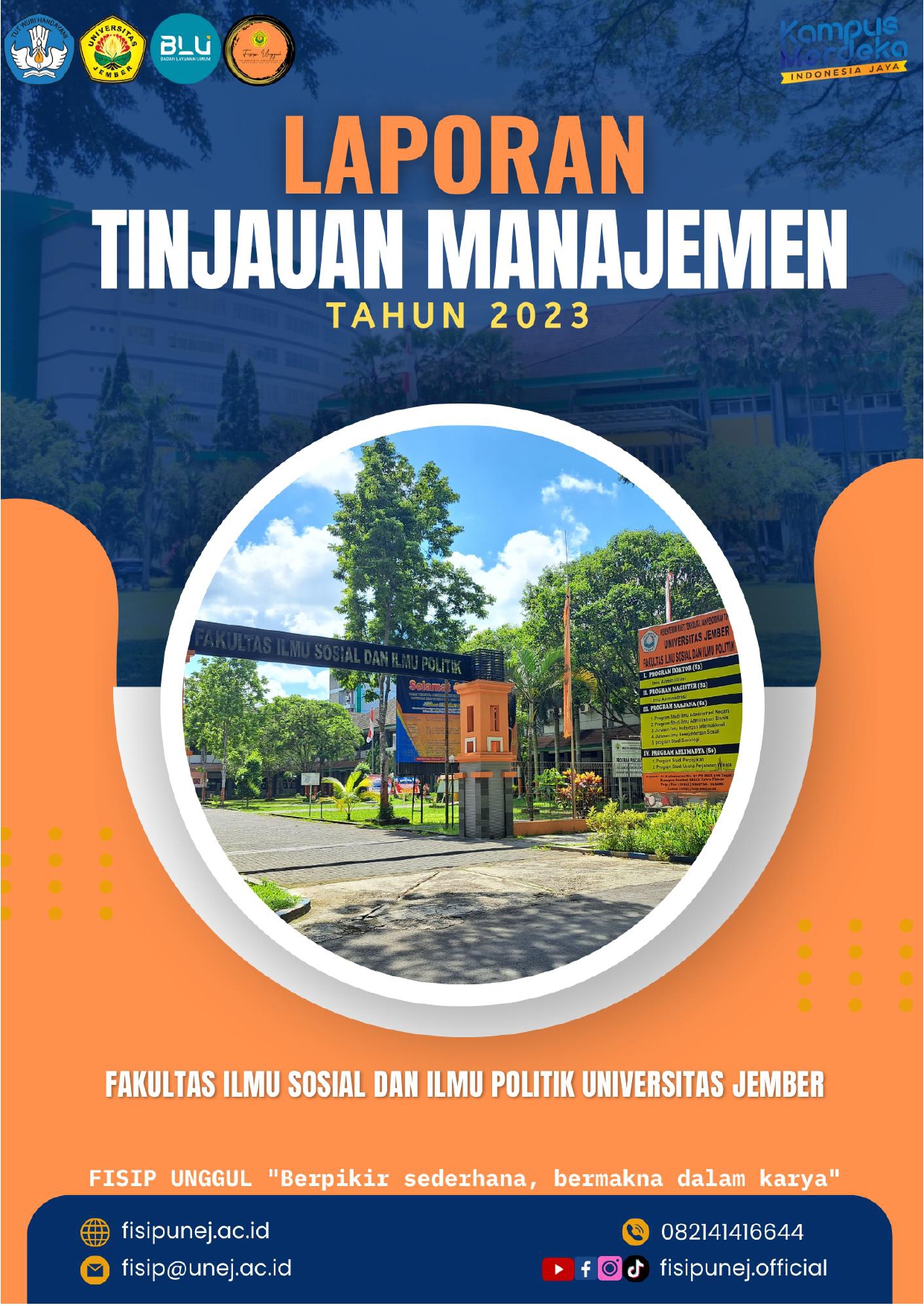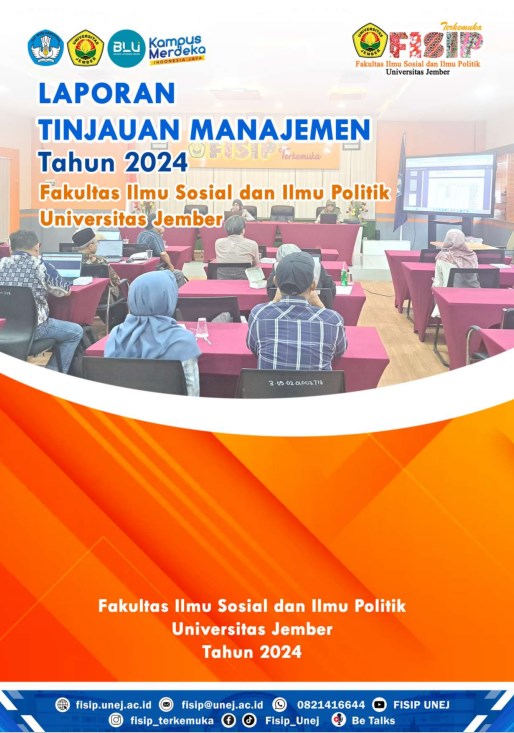Welcome To
Quality Assurance (GPM)PROFIL
To realize an accountable management system for the Faculty of Social and Political Sciences, as one of the principles of Good Governance, and considering the provisions regarding the Dean’s accountability for the institution’s management, the Faculty of Social and Political Sciences has established a monitoring and evaluation system. The purpose of this system is to assist the leadership in monitoring and evaluating program implementation in accordance with the planning.
To meet the demands of the new paradigm of higher education management, which prioritizes continuous quality improvement and is based on the Rector’s Decree No. 12134/UN25/OT/2013 concerning the Quality Assurance System of the University of Jember, at the faculty level, the Dean established a unit called the Quality Assurance Group (Gugus Penjamin Mutu or GPM). This unit functions as a driving force and coordinator to control and develop the academic quality assurance system at the faculty level and is integrated with the overall quality assurance system of UNEJ.
The Quality Assurance Group (GPM) of the Faculty of Social and Political Sciences, University of Jember (FISIP UNEJ), is a quality assurance unit at the faculty level that has the duties and responsibilities in fulfilling sustainable quality standards covering education, resources, and governance within FISIP UNEJ. FISIP’s quality assurance is a process of establishing and fulfilling educational quality standards consistently and continuously (continuous improvement) to enhance the academic quality of FISIP UNEJ sustainably in order to achieve the established vision and mission and meet stakeholder needs (community needs, industry needs, and professional needs) through the implementation of the Higher Education Tri Dharma.
GPM is also responsible for the development and control of the Faculty’s academic quality assurance system. GPM performs the functions of developing and controlling the Faculty and Study Programs’ academic quality assurance system, which is in line with the university’s Internal Quality Assurance System (SPMI). The activities of planning, implementing, controlling, and developing university quality standards consistently and continuously are carried out by GPM to optimize its role in the field of quality assurance for both internal and external stakeholders.
GPM FISIP UNEJ carries out its duties based on the cycle of Planning, Implementation, Evaluation, Control, and Improvement (PPEPP), which is conducted consistently and continuously. The implementation of PPEPP is carried out to ensure that the implementation of higher education is in accordance with the standards set by the University of Jember. GPM FISIP UNEJ develops various quality standards and items at the Faculty level, conducts monitoring and evaluation of quality assurance implementation, coordinates the implementation of internal quality assurance standards (SPMI) through Internal Quality Audit (AMI) activities, and also the implementation of external quality assurance standards (SPME) through national and international accreditation, coordinates quality improvement at the study program level, coordinates data-based information, seeks solutions for academic excellence, and prepares periodic reports and recommendations, coordinating with the Dean of FISIP and LPMPP of the University of Jember in its implementation.
GPM FISIP UNEJ is currently the coordinator for the Quality Assurance Unit (UPM) Teams in the nine Study Programs within the Faculty of Social and Political Sciences, University of Jember, based on the Decree of the Dean of the Faculty of Social and Political Sciences, University of Jember, Number 0010/UN25.1.2/SP/2025 concerning the Appointment of the Quality Assurance Group, Quality Assurance Unit, and Accreditation Team for 2025.
VISION
“To be a superior work unit in guaranteeing the application of quality management systems within the Faculty of Social and Political Sciences, University of Jember”
MISSION
- To develop and implement a sustainable internal quality assurance system.
- To actively participate in the development of an early warning system as an integral part of the Faculty-level Quality Assurance System (QAS).
- To establish FISIP UNEJ as a center of excellence in the Faculty-level Quality Assurance System (QAS).
- To facilitate the acceleration of accreditation for Superior and International Study Programs.
- To enhance the capabilities of Study Programs to support university ranking.
- To conduct satisfaction surveys among faculty members, students, administrative staff, alumni, and employers to continuously improve the quality of education and graduate outcomes.
- To coordinate with other work units within FISIP UNEJ to enhance the quality of resources, governance, and educational services.
PRINCIPAL DUTIES AND FUNCTIONS
“The main duties and functions (tupoksi) of GPM are to conduct academic quality assurance in every aspect related to the learning process in Diploma, Undergraduate, Masters, and Doctoral Programs.”
The GPM activities consist of:
- Planning and implementation of the overall quality assurance system at the Faculty of Social and Political Sciences, University of Jember
- Development of necessary instruments for the implementation of the quality assurance system.
- Monitoring the implementation of the quality assurance system.
- Auditing and evaluating the semester-based quality assurance implementation of each study program at FISIP. Providing assistance in the development of competency-based curricula, assistance in the preparation of Self-Evaluation Report (LKPS) documents, self-evaluation or accreditation forms, and disseminating faculty policies for routine internal evaluation activities.
- Regular reporting of the quality assurance system implementation at FISIP to the Dean.
All GPM activities are aimed at:
- To ensure the quality of educational implementation to produce competent, ethical, professional, responsible graduates who are able to develop themselves and are competitive at the national and international levels.
- To ensure the quality of research and community service by monitoring and evaluating the alignment of research and community service themes with the FISIP Universitas Jember roadmap.
- To continuously improve the quality management system.
ORGANIZATIONAL STRUCTURE

LEADER of GPM
Panca Oktawirani, S.Si., M.Si., Ph.D.

SECRETARY of GPM
Dr. Belgis Hayyinatun Nufus, S.Sos., M.Kesos.

ACCREDITATION DIVISION
Sari Dewi Poerwanti, S.Sos., M.Kesos.

ACCREDITATION DIVISION
Rebecha Prananta, S.Si., M.Si.

QUALITY ASSURANCE DIVISION
Dr. Setyowati Karyaningtyas, S.Sos., M.Si.

QUALITY ASSURANCE DIVISION
Fauziyah Azzahro, S.Ak., M.Ak.

QUALITY ASSURANCE UNIT OF THE INTERNATIONAL RELATIONS STUDY PROGRAM
Fuat Albayumi, S.IP.,M.A.

QUALITY ASSURANCE UNIT OF BUSINESS ADMINISTRATION STUDY PROGRAM
Dra. Dwi Windradini B.P., M.Si.

QUALITY ASSURANCE UNIT OF THE PUBLIC ADMINISTRATION STUDY PROGRAM
Abul Haris Suryo Negoro, S.IP.,M.Si.

QUALITY ASSURANCE UNIT OF THE SOCIAL WELFARE STUDY PROGRAM
Maisaroh Choirotunnisa, S.Sos., M.A.

SOCIOLOGY STUDY PROGRAM QUALITY ASSURANCE UNIT
Jati Arifiyanti S.Sosio., MA

QUALITY ASSURANCE UNIT OF THE MASTER OF ADMINISTRATIVE SCIENCE PROGRAM
Dr. Suji, S.Sos., M.Si.
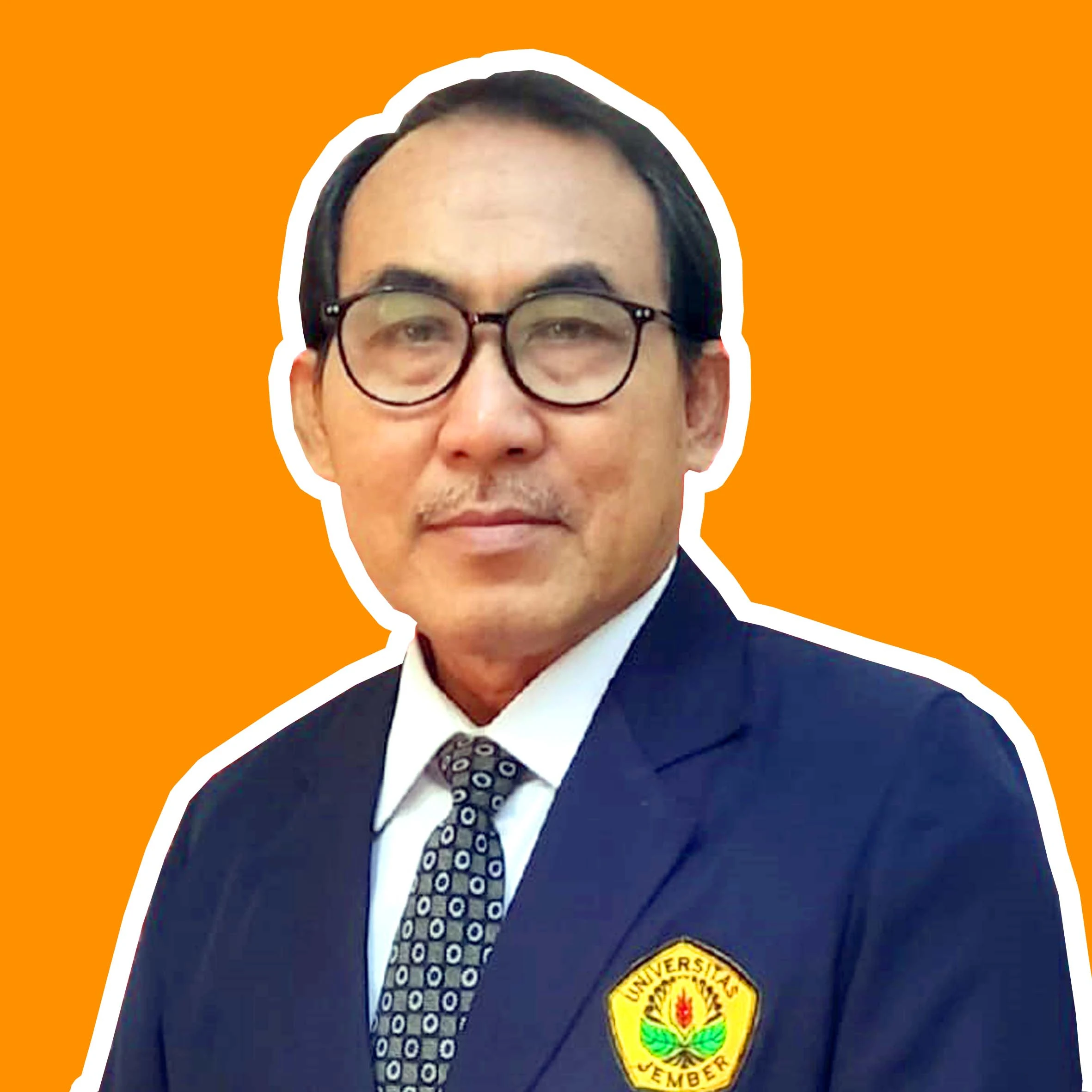
QUALITY ASSURANCE UNIT OF THE DOCTORAL PROGRAM IN ADMINISTRATIVE SCIENCE
Prof. Dr. I Ketut Mastika, M.M.

QUALITY ASSURANCE UNIT OF THE TAXATION STUDY PROGRAM
Venantya Asmandani S.E., M.A.

THE QUALITY ASSURANCE UNIT OF THE TOURISM TRAVEL PROGRAM STUDY UNIT
Pramesi Lokaprasidha, S.S., M.Par.

